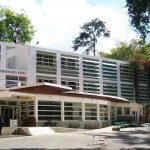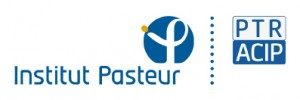Présentation
Acquisition of antibiotic resistant bacteria and development of the gut microbiome in neonates in low-income countries.
Antibiotic resistance represents a major health issue worldwide. The situation is particularly acute in low-income countries (LIC), due to misuse of antibiotics, counterfeit drugs or substandard hygiene and living conditions. In particular, infections and gut colonization by extended spectrum beta-lactamase- and carbapenemase-producing Enterobactericeae (ESBL- and C-PE) is becoming extremely worrisome. The gut microbiome plays a major role on multiple aspects of health and, most notably, influences the colonization by multiresistant bacteria (MRB).
In this project we propose to further characterize the factors that shape the human microbiome in early infancy and the establishment of pathogenic MRB in Madagascar. For this purpose, we carry out a multi-disciplinary project involving data collection, deep sequencing and mathematical modelling. Nested in the BIRDY* program we follow 400 children over their first month of life and frequently collect stool samples together with medical and socio-demographic information.
The aim is (1) to improve our knowledge of microbiome composition and its dynamics in early infancy in a LIC, Madagascar; (2) to provide genomic knowledge on antibiotic resistant strains and resistance genes circulating in this island; and (3) using mathematical modelling, to identify factors and ecological interactions influencing the outgrowth of pathogenic bacteria in new-borns, including MRB and decipher the role of the gut microbiome. The project is funded by the Institut Pasteur (mission PTR) and the Foundation Monaco.
*The BIRDY program is a multi-centric cohort which aims at determining the burden of childhood and neonatal infections caused by antibiotic resistant bacteria in LIC. It is based on an international pediatric cohort implemented within the Institut Pasteur International Network (IPIN).
Keywords: Gut Microbiota, Antibiotic-resistance, Metagenomics, Dynamics, Mathematical Modelling, Madagascar, Pathogens Interactions.







